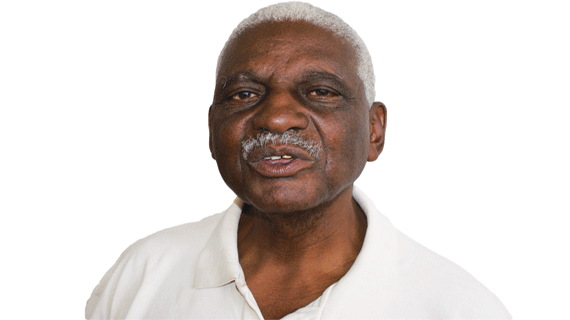
WE want to repeat and emphasise that language is for communication between people and that communication is more effective if it is done according to certain ways (rules) that are acceptable to the people who speak that language.
Eventually that is how grammar develops. When grammar is relegated to second class status in any language that language loses its effectiveness.
Modern languages have developed very elaborate and complicated grammars most of which are relevant to academic settings.
Indeed, ancient classical languages like Greek, Hebrew and Latin also had intricate grammars. As far as this goes, Ndebele and other African languages have developed their oral grammars which make as much logic as those that have been written and consciously studied.
Every Ndebele speaker knows that it is wrong to say: Wafika izolo kusihlwa sesilele, without knowing or unaware of the rules of the tenses — present, past, remote past, future, remote future or whatever. A good Ndebele speaker will say: Ufike izolo kusihlwa sesilele.
They will say Wafika ngeviki ephelileyo or Ufike ngeviki ephelileyo. Both are correct and acceptable. It is good to know the tenses and to use them correctly. Notice the use of tenses in such a complex sentence as, Ngibe ngizamlandela ngifike ngimbambe ngimbhixe ngodaka ayangeke phambi kwabantu. How would you say it as a future action? Here is another common error: Bayamesaba.
Bebethi bengambona bebaleke beyocatsha. The error here is be-. Ndebele says ba-. Babathi bangambona babaleke bayocatsha. The point is abantu ba-, bayabona, bazacatsha, hence bangambona, babaleke , bayocatsha. Correct this sentence, Ngithe mina bengamfica ekhona bemtshele ukuthi ngiyamdinga.
However, this is not to be confused with such correct structures as, Bebesithini kumalume?, Bebengatsho lutho. Another common error in this context is ebe- in place of ube-: Ebefuna ukumsiza kodwa yena wayala. Two mistakes in this sentence are: Ebefuna should be ubefuna, hence, Eyethi engamkhangela kodwa nje ezwe emcaphukela.
- Chamisa under fire over US$120K donation
- Mavhunga puts DeMbare into Chibuku quarterfinals
- Pension funds bet on Cabora Bassa oilfields
- Councils defy govt fire tender directive
Keep Reading
Some people say: Ayathi angamkhangela . . . Both are incorrect. Eyethi and ayathi both should be uyaye athi which becomes by elision uyayathi. Uyathi angamkhangela . . . The version Uyathi angamkhangela is not correct. Notice these: Uyayabuye ilanga selitshonile in the same order as Babuye, babathandaze, uyayahambe and so on. Thus, uyayathini kuwe nxa umbuza and not Uyathini . . .
The incorrect sentence above: Ebefuna ukumsiza kodwa yena wayala contains the mistakes ebefuna for ubefuna as shown above, and wayala. The vowel verb stem -ala becomes wa+-ala> waala (double vowel)>wala (by vowel elision). Hence, yena wala.
Notice these vowel verb stems:
- -osa. Wosa umubu omnengi not wawosa umumbu omnengi,
- -enza. Wenza into embi not wayenza into embi,
- Ngambona esenza – not ngambona eyenza,
- -ekela. Bayekela inja isidla amasi ami not Bekela,
- Ubongiyekela ngizibonele not ubongekela,
- Angayekela ukungikhulumisa ngizamthethisa not Angekela,
- -ona. Ngona ngokumtshengisa imali yami not Ngawona,
- Inkomo zakho zangonela emasimini not zangiwonela,
- Umntwana ube+oneni>uboneni not ube woneni
- -eqa Weqela emoteni wayisusa not wayeqela,
- Ipholisa leqa uthango langena not layeqa
These few examples should help Ndebele speakers to handle vowel verb stems more correctly and to correct the mistakes that abound in everyday speech. Of particular interest in Ndebele is that although most verbs form their recent past by adding –ile in place of the final vowel, eg -dla>dlile, zonda-zondile, the single syllable verb –ma (stand) is an exception.
It does not take -ile to become –mile. There is a world of difference between: Isihlahla simile ensimini and isihlahla simi ensimini .
To say simile means has germinated or is growing/sprouting, whereas simi means is standing in the field. The –ile form with its verb stem is bad Ndebele. Don’t say: Ngimfice elokhu emile emgwaqweni, but elokhu emi emgwaqweni. The following are all wrong: Umile yedwa egcekeni. Wobani limile ngizalibiza. Ingoma ithi Ngimile apha eJorodani abanye bayawela. Bonke abamileyo wozani phambili.
Good Ndebele says:
- Angithi uyangibona lapha engimi khona?
- Balokhu bemi elizwini labo layizolo.
- Ugogo ulokhu emi phandle emqandweni
If you said: Ulokhu emile phandle you mean she is still growing outside –umi not umile. Please notice that Ndebele prefers to say: Abantu bemi rather than abantu bami. We say: Bemi bodwa and not bami bodwa. Ngizabe ngimi ko-OK and not ngizabe ngimile ko-OK” If there are any doubts or reservations concerning the above, readers should feel free to disagree, to ask and to make any comments. Our main aim is that people should be able to speak correct Ndebele and thus communicate more effectively.
Kulesithunzi ukukhuluma ulimi lwakho ungalukilizi.










